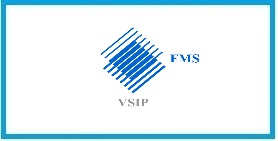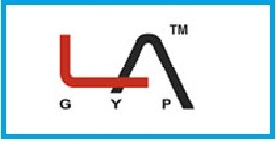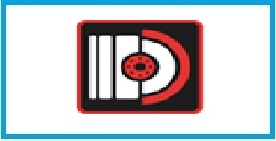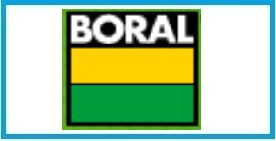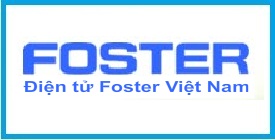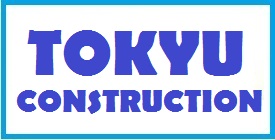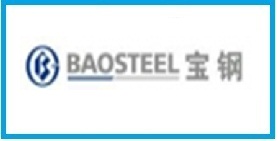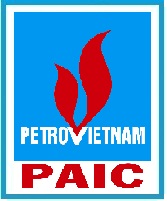 0936 1111 82
0936 1111 82Decree 60/2013/ND-CP detailing clause 3 article 63 of the labor code on implementing the democracy regulation at grassroots at the working places
Decree 60/2013/ND-CP detailing clause 3 article 63 of the labor code on implementing the democracy regulation at grassroots at the working places
|
THE GOVERNMENT |
SOCIALIST REPUBLIC OF VIET NAM |
|
No: 60/2013/ND-CP |
Hanoi , June 19, 2013 |
DECREE
|
THE GOVERNMENT |
SOCIALIST REPUBLIC OF VIET NAM |
|
No: 60/2013/ND-CP |
Hanoi , June 19, 2013 |
DECREE
DETAILING CLAUSE 3 ARTICLE 63 OF THE LABOR CODE ON IMPLEMENTING THE DEMOCRACY REGULATION AT GRASSROOTS AT THE WORKING PLACES
Pursuant to the Law on Government organization dated December 25, 2001;
Pursuant to the Labor Code dated June 18, 2012;
At the proposal of the Minister of Labor, Invalids and Social Affairs,
The Government promulgates the Decree detailing clause 3 Article 63 of the Labor Code on implementing the democracy regulation at grassroots at the working places.
Chapter 1.
GENERAL PROVISIONS
Article 1. Scope of regulation
This Decree provides content of the democracy regulation at grassroots and form of implementing democracy at working places in enterprises, organizations, cooperatives, households, individuals hiring, employing laborers working under labor contract (hereinafter refered to as enterprises).
Article 2. Subjects of application
1. Employees as prescribed in clause 1 Article 3 of the Labor Code.
2. Employers as prescribed in clause 2 Article 3 of the Labor Code.
3. Organizations representing labor collectives at grassroots as prescribed in clause 4 Article 3 of the Labor Code.
4. Agencies, organizations, individuals relating to implementation of the democracy regulation at grassroots at working places as prescribed in this Decree.
Article 3. Interpretation of terms
In this Decree, the following terms are construed as follows:
1. Democracy regulation at grassroots are regulations on rights and responsibilities of employees, employers, organizations representing labor collectives that employees are entitled to have information, to participate in giving opinion, to decide, to check, supervise and forms of implementing democracy at grassroots at working places.
2. Discuss at working places mean direct discuss between employers with employees or between representatives of labor collectives with employers with the aim of sharing information, improving understanding between employers and employees so as to ensure the implementation of democracy regulation at grassroots at working places.
3. Conferences of laborers mean systematic meetings that are presided over for organizing every year by the employers with the participation of employees and organization representing labor collectives at grassroots in order to exchange information and implement democracy rights of employee.
Article 4. Principles in implementing democracy regulation at grassroots at working places
1. The employers must respect and ensure democracy rights of employees at working places; democracy rights implemented in law framework through democracy regulation of enterprises.
2. Enterprises must elaborate and implement the publicized and transparent democracy regulation at grassroots at working places in order to ensure lawful rights and interests of employees, the employer and State.
Article 5. The prohibited acts when implementing democracy at working places
1. To exercise in contrary to regulations of law.
2. To infringe national security, order and social safety, infringe benefits of State.
3. To infringe lawful rights and interests of employers and employees.
4. To take revenge on, discriminate against participants of discuss, complainants, accusers.
Chapter 2.
CONTENT OF DEMOCRACY REGULATION AT GRASSROOTS AT WORKING PLACES
Article 6. Contents must be publicized by the employers
1. Plan on production, business and implementation of production and business plan of enterprises, departments, workshops, production groups and teams.
2. Internal rules, regulation and provisions of enterprises, include: labor internal rules; regulation on recruitment and employment of laborers; labor norms; wage scales and payrolls, regulation on raising wage grade, regulation on wage payment, prize payment; equipping labor protection, process on operating machines and equipment, labour safety, labor hygiene, environmental protection, fire and explosion prevention and fighting; protection of business secret and technological secret; emulation, rewarding and discipline.
3. Implementation of regimes, policies on recruitment and employment of laborers, severance allowance, job-loss allowance, training, re-training, improving professional operations and skills, wages, bonuses, deduction of wage, social insurance, unemployment insurance and medical insurance for employees.
4. Collective labor agreement of enterprise, collective labor agreement of sector, other form of collective labor agreement (if any).
5. The establishment and use of the rewarding fund, welfare fund, and funds contributed by employees.
6. The deduction and remittance of the Trade Union’s funding, payment of social insurance, medical insurance and unemployment insurance.
7. To publicize the annual finance of enterprise about contents relating to employees.
8. Operational charter of enterprises and other contents as prescribed by law.
Article 7. Contents which employees may participate in giving their opinions
1. Elaborating or amending and supplementing internal rules, regulation, provisions that must be publicized in enterprises.
2. Solutions on saving expenses, improving the labor capacity, labour safety, labor hygiene, environmental protection and fire and explosion prevention and fighting.
3. Elaborating or amending and supplementing collective labor agreement of enterprises, collective labor agreement of sector, and other form of collective labor agreement (if any).
4. Resolutions on Conferences of laborers.
5. Process and procedures for resolving labor disputes, handling of labor discipline and material liability.
6. Other contents relating to rights and obligations of employees as prescribed by law.
Article 8. Contents which employees may decide
1. Concluding labor contracts, exercising labor contracts, amending and supplementing, terminating labor contracts as prescribed by law.
2. Content of negotiations for the collective labor agreement of enterprises, collective labor agreement of sector, other form of collective labor agreement.
3. Adopting Resolutions on Conferences of laborers.
4. Acceding or not acceding the Trade Union, professional organizations and other organizations as prescribed by law.
5. Participating or not participating in strike.
6. Other contetns as prescribed by law.
Article 9. Contents which employees may check and suppervise
1. Exercising the production and business plan of enterprises, departments, workshops, production groups and teams.
2. Exercising labor contracts and regimes, policies for employees as prescribed by law.
3. Exercising internal rules, regulation and provisions that must be publicized of enterprises.
4. Exercising the collective labor agreement of enterprises, collective labor agreement of sector, and other form of collective labor agreement (if any); exercising the Resolutions on Conferences of laborers, Resolution on Conferences of Trade Union organization at grassroots level.
5. The establishment and use of the rewarding fund, welfare fund and funds contributed by employee, deduction and remittance of the Trade Union’s funding, payment of social insurance, medical insurance and unemployment insurance.
6. Emulation, rewarding and discipline; complaints, denunciation and results of resolving complaints, denunciation; conclusions of inspectors, auditors and implementation of recommends of inspectors, auditors related to rights and interests of employees.
7. Exercising the charter of enterprise and other contents as prescribed by law.
8. Exercising contents of democracy regulation specified in this Decree.
Chapter 3.
FORMS OF IMPLEMENTING DEMOCRACY AT WORKING PLACES
Section 1: DISCUSS AT WORKING PLACES
Article 10: Responsibilities for holding periodical discussions at working places
1. Employers shall assume the prime responsibility for, and coordinate with organizations representing labor collectives at grassroots in exercising periodical discussions at working places on 03 months basis so as to exchange, discuss contents specified in Article 64 of the Labor Code; distance between two adjacent periodical discussions does not exceed 90 days. If time of holding periodical discussion coincidedwith time of holding conferences of laborers specified in clause 2 Article 14 of this Decree, enterprises are not required to hold the periodical discussion.
2. The employers shall:
a. Issue the regulation on periodical discussion at the working places after consulting the organizations representing labor collectives at grassroots and popularize publicly to each employee in enterprises for implementation;
b. Arrange location, time and other necessary material conditions for discussion;
c. Assign members representing for employers to participate in discussion;
d. Holding periodical discussions at working places.
3. Organizations representing labor collectives at grassroots shall:
a. Participate in to give out opinion on the periodical discussion regulation at working places at the request of employers
b. Hold election of members representing for labor collectives to participate in discussion at conferences of laborers;
c. Coordinate with employers in holding and exercising periodical discussions at working places.
Article 11. Quantity, members, standards of members participating in periodical discussions at working places
1. Each party in discussion may decide quantity of the representing members of party to participate in discussion; this quantity must be not less than 03 persons.
2. Participants in discussion include:
a. The employers or persons legally delegated by the employers and members representing for employer party having been assigned by the employers;
b. Executive Board of Trade Union at grassroots level or representatives of Executive Board of Trade Union at direct superior level where the Trade Union at grassroots level have not yet been established and members representing for the labor collective party having been elected by conferences of laborers;
3. Standards of members participating in periodical discussions are specified in the periodical discussion regulation at working places of enterprises.
Article 12. Process of the periodical discussions at working places
1. Preparing content, time, location and participants of discussion:
a. 60 days after ending the last adjacent discussion, the employer and chairman of Trade Union at grassroots or representative of Executive Board of Trade Union at direct superior level where the Trade Union at grassroots level have not yet been established shall sum up content and send request for discussion to the discussion party;
b. Within 05 working days after receiving request for discussion, the employer and chairman of Trade Union at grassroots or representative of Executive Board of Trade Union at direct superior level where the Trade Union at grassroots level have not yet been established shall unify content, time, location and the participants of periodical discussion at the working place;
c. Within 03 days after two parties unified content, time, location and the participants of periodical discussion at the working place, the employer shall issue decision in writing on holding periodical discussion at the working place. Decision on holding periodical discussion at the working place must be sent to the chairman of Trade Union at grassroots or representative of Executive Board of Trade Union at direct superior level where the Trade Union at grassroots level have not yet been established and the participants of discussion before day of holding discussion at least 05 working days;
d. The employer and chairman of Trade Union at grassroots or representative of Executive Board of Trade Union at direct superior level where the Trade Union at grassroots level have not yet been established shall assign the discussion participants of each party to prepare content, data and related documents for discussion.
2. Holding discussion:
a. Periodical discussion at working places is held at location and on time as unified. If the employer changes the location, time of discussion, he/she must notify the chairman of Trade Union at grassroots or representative of Executive Board of Trade Union at direct superior level where the Trade Union at grassroots level have not yet been established and the participants of periodical discussion at working place before day of holding discussion inscribed in decision on holding periodical discussion at working place at least 01 working day;
b. Periodical discussions at working places only are exercised with presence of at least 2/3 members representing each party. In case the discussion has not sufficient 2/3 members representing each party, the employers will decide delay discussion to a later time but it does not exceed 03 working days after discussion has been delayed;
c. During the discussion, the participants of discussion are responsible for supply of information, data, exchange, democracy discussion on contents of discussion.
3. Ending discussion:
a. The employer and chairman of Trade Union at grassroots or representative of Executive Board of Trade Union at direct superior level where the Trade Union at grassroots level have not yet been established shall make minutes of discussion. The minutes of discussion clearly state the unified contents and measures to carry out; the inconsistencies and time carrying out discussion on inconsistencies or each party exercise procedures for solving labor disputes as prescribed by law on labor. Representatives of two parties will sign, stamp to confirm the content of the minutes. The minutes of periodical discussions at working places are made in 03 copies with the same valid, each the discussion participant keeps one copy and one archived at enterprise;
b. The employers are responsible for publicly listing the minutes of periodical discussions at working places at enterprises, departments, workshops, production groups and teams and publish on the system of broadcasting, internal information or electronic information of enterprises.
Article 13. Discussion at the request of a party
1. In case where a party requests for holding discussion, within 10 working days after receiving content of discussion request, the employer will be responsible for assuming the prime responsibility for, and coordinating with organization representing labor collectives at grassroots to organize discussion.
2. Quantity, the participants of discussion and responsibilities of parties in holding discussion are conducted in similar manner of the periodical discussions at working places.
Section 2. CONFERENCES OF LABORERS
Article 14. Holding conferences of laborers
1. Enterprises employing 10 employees or more must hold conferences of laborers.
2. Conferences of laborers are held 12 months once.
3. Conferences of laborers are held under form of plenary conference for enterprises employing less than 100 employees and form of congress of representatives for enterprises employing 100 employees or more.
Article 15. Responsibilities in holding conferences of laborers
1. The employers are responsible for elaborating regulation on holding conferences of laborers, arranging locations, time, necessary material conditions and holding conferences of laborers. Regulation on holding conferences of laborers will be issued after consult organization representing labor collectives at grassroots and it must be popularized publicly to employees in enterprise.
2. Organizations representing labor collectives are responsible for coordinating with the employers in elaborating and conducting regulation on holding conferences of laborers.
Article 16. The participants of conferences of laborers
1. The participants of conferences of laborers include all employees in enterprises. In case where employees cannot leave the production position, employers and organizations representing labor collectives at grassroots may make agreement on the participants of conferences.
2. The participants of conferences of representatives include:
a. Representatives as prescribed certainly include members of the Management Board or Members' Council or chairman of company, head of control board or controller; General Director, Director, Deputy General Director, Deputy Director, Chief accountant, Executive Board of Trade Union at grassroots or representatives of Executive Board of Trade Union at direct superior level where the Trade Union at grassroots level have not yet been established, head of political organizations, socio-political organizations in enterprises (if any);
b. The elected representatives are persons having been elected by conferences of laborers at level of departments, workshops, production groups and teams as prescribed.
Article 17. Electing representatives to participate in conferences of representatives
1. The minimum quantity of elected representatives is stipulated as follows:
a. For enterprises employing 100 laborers, electing at least 50 representatives;
b. For enterprise employing between 101 and under 1000 laborers, apart from number of representatives which must elect initially at point a clause 1 this Article, every 100 laborers, it must elect at least 5 representatives;
a. For enterprise employing 1000 laborers, electing at least 100 representatives;
d. For enterprise employing between 1001 and under 5000 laborers, apart from number of representatives which must elect initially at point c clause 1 this Article, every 1000 laborers, it must elect at least 20 representatives;
e. For enterprise employing 5000 laborers or more, electing at least 200 representatives;
2. The employers and organizations representing labor collectives at grassroots shall unify and decide on quantity, structure of representatives who are elected to participate in conferences of representatives and allocate quantity, structure of the elected representatives corresponding to quantity and labor structure of each department, workshop, production group or team.
3. The elected representatives must reach over 50% of total valid election votes; cases arising in the course of election are provided as follows:
a. In case where many persons attain over 50% of total valid election votes, select according to decreasing order from the person having the highest number of vote until having sufficient the allocated representatives;
b. In case in the first election, number of persons winning election is insufficient in comparison with the allocated quantity of representatives, continuing next elections until having sufficient quantity of representatives;
c. In case where many persons attain over 50% of total valid election votes and elected with the same quantity of votes but the allocated number of representative is exceeded, further hold election for persons with the same quantity of votes so as to select persons with higher quantity of elected votes until having sufficient the allocated representatives;
Article 18. Contents of conferences of laborers
1. Conferences of laborers will discuss the following contents:
a. Status of implementing the plans on production and business of enterprises and contents directly relating to employment of employees, benefits of enterprises;
b. Result of inspection and supervision on implementation of labor contracts, collective labor agreements, internal rules, provisions, regulation of enterprises;
c. Status of complaints, denunciations and solving of complaints, denunciations;
d. Labor conditions and measures to improve labor conditions;
dd. Comments, proposals of each party;
e. Other contents that are interested by two parties.
2. Electing members representing for labor collectives to participate in periodical discussion.
3. Adopting Resolutions on Conferences of laborers.
Article 19. Process of holding conferences of laborers
1. Electing the chairman and clerk of conferences
2. Reporting on role status of representatives participating in conferences.
3. Report of the employer
4. Report of organization representing labor collectives at grassroots.
5. Representatives conduct discussion.
6. Electing members representing for labor collectives to participate in periodical discussion.
7. Voting to adopt Resolution on Conference of laborers.
Article 20. Popularization, carrying out, supervision of implementation of Resolutions on Conferences of laborers
1. The employers shall assume the prime responsibility for, and coordinate with organizations representing labor collectives at grassroots in popularizing results of conferences of laborers to all employees and carrying out Resolutions on conferences of laborers in enterprises.
2. Organizations representing labor collectives at grassroots shall coordinate with the employers in popularizing results of conferences of laborers to all employees in enterprises; checking, supervising implementation of Resolutions on conferences of laborers in enterprises.
3. Representatives participating in conferences of laborers shall popularize results and Resolutions on conferences of laborers up to employees who did not participate in conferences of laborers in departments, workshops, productions groups and teams where they are elected to do as representatives to participate in conferences of representatives.
Section 3: OTHER FORMS OF DEMOCRACY IMPLEMENTATION
Article 21: Other forms of democracy implementation
1. Supplying and exchanging information at meetings of key leaders or at meetings from groups, teams to whole enterprises or at specialized meetings of departments, workshops, production groups and teams.
2. Listing publicly at advantageous places in enterprises.
3. Supplying information through the system of broadcasting, internal information, internet or in writing; publications, books, newspapers sent to each employee, department, workshop, production team and group.
4. Mail box for contributing opinions
5. Holding collection of direct opinions of employees that may be performed by the employers, political organizations, and socio-political organizations in enterprises.
6. Self-deciding in writing.
7. Voting at meetings, conferences in enterprises.
8. Comments, complaints and denunciations in accordance with law.
Article 22: Applying of other forms of democracy implementation at enterprises
The employers, employees, organizations representing labor collectives at grassroots shall, based on each content of democracy regulation specified in Chapter 2 of this Decree and actual conditions of enterprises, select forms of democracy implementation specified in Article 21 of this Decree for conformity.
Chapter 4.
IMPLEMENTATION PROVISIONS
Article 23. Effect
This Decree takes effect on August 15, 2013.
The Government’s Decree No. 07/1999/ND-CP dated February 13, 1999 promulgating the regulation on exercising democracy in state enterprises, the Government’s Decree No. 87/2007/ND-CP dated May 28, 2007 promulgating the regulation on the exercise of democracy in joint-stock companies and limited liability companies and all previous documents which are contrary to this Decree are hereby cease to be effective on the effective date of this Decree.
Article 24. Responsibilities for implementation
The ministers, the heads of the ministerial-level agencies, the heads of the agencies attached to the Government, the presidents of the People’s Committees of the provinces and centrally-run cities and subjects of application of this Decree shall implement this Decree.
|
|
ON BEHALF OF THE GOVERNMENT |
Pursuant to the Law on Government organization dated December 25, 2001;
Pursuant to the Labor Code dated June 18, 2012;
At the proposal of the Minister of Labor, Invalids and Social Affairs,
The Government promulgates the Decree detailing clause 3 Article 63 of the Labor Code on implementing the democracy regulation at grassroots at the working places.
Chapter 1.
GENERAL PROVISIONS
Article 1. Scope of regulation
This Decree provides content of the democracy regulation at grassroots and form of implementing democracy at working places in enterprises, organizations, cooperatives, households, individuals hiring, employing laborers working under labor contract (hereinafter refered to as enterprises).
Article 2. Subjects of application
1. Employees as prescribed in clause 1 Article 3 of the Labor Code.
2. Employers as prescribed in clause 2 Article 3 of the Labor Code.
3. Organizations representing labor collectives at grassroots as prescribed in clause 4 Article 3 of the Labor Code.
4. Agencies, organizations, individuals relating to implementation of the democracy regulation at grassroots at working places as prescribed in this Decree.
Article 3. Interpretation of terms
In this Decree, the following terms are construed as follows:
1. Democracy regulation at grassroots are regulations on rights and responsibilities of employees, employers, organizations representing labor collectives that employees are entitled to have information, to participate in giving opinion, to decide, to check, supervise and forms of implementing democracy at grassroots at working places.
2. Discuss at working places mean direct discuss between employers with employees or between representatives of labor collectives with employers with the aim of sharing information, improving understanding between employers and employees so as to ensure the implementation of democracy regulation at grassroots at working places.
3. Conferences of laborers mean systematic meetings that are presided over for organizing every year by the employers with the participation of employees and organization representing labor collectives at grassroots in order to exchange information and implement democracy rights of employee.
Article 4. Principles in implementing democracy regulation at grassroots at working places
1. The employers must respect and ensure democracy rights of employees at working places; democracy rights implemented in law framework through democracy regulation of enterprises.
2. Enterprises must elaborate and implement the publicized and transparent democracy regulation at grassroots at working places in order to ensure lawful rights and interests of employees, the employer and State.
Article 5. The prohibited acts when implementing democracy at working places
1. To exercise in contrary to regulations of law.
2. To infringe national security, order and social safety, infringe benefits of State.
3. To infringe lawful rights and interests of employers and employees.
4. To take revenge on, discriminate against participants of discuss, complainants, accusers.
Chapter 2.
CONTENT OF DEMOCRACY REGULATION AT GRASSROOTS AT WORKING PLACES
Article 6. Contents must be publicized by the employers
1. Plan on production, business and implementation of production and business plan of enterprises, departments, workshops, production groups and teams.
2. Internal rules, regulation and provisions of enterprises, include: labor internal rules; regulation on recruitment and employment of laborers; labor norms; wage scales and payrolls, regulation on raising wage grade, regulation on wage payment, prize payment; equipping labor protection, process on operating machines and equipment, labour safety, labor hygiene, environmental protection, fire and explosion prevention and fighting; protection of business secret and technological secret; emulation, rewarding and discipline.
3. Implementation of regimes, policies on recruitment and employment of laborers, severance allowance, job-loss allowance, training, re-training, improving professional operations and skills, wages, bonuses, deduction of wage, social insurance, unemployment insurance and medical insurance for employees.
4. Collective labor agreement of enterprise, collective labor agreement of sector, other form of collective labor agreement (if any).
5. The establishment and use of the rewarding fund, welfare fund, and funds contributed by employees.
6. The deduction and remittance of the Trade Union’s funding, payment of social insurance, medical insurance and unemployment insurance.
7. To publicize the annual finance of enterprise about contents relating to employees.
8. Operational charter of enterprises and other contents as prescribed by law.
Article 7. Contents which employees may participate in giving their opinions
1. Elaborating or amending and supplementing internal rules, regulation, provisions that must be publicized in enterprises.
2. Solutions on saving expenses, improving the labor capacity, labour safety, labor hygiene, environmental protection and fire and explosion prevention and fighting.
3. Elaborating or amending and supplementing collective labor agreement of enterprises, collective labor agreement of sector, and other form of collective labor agreement (if any).
4. Resolutions on Conferences of laborers.
5. Process and procedures for resolving labor disputes, handling of labor discipline and material liability.
6. Other contents relating to rights and obligations of employees as prescribed by law.
Article 8. Contents which employees may decide
1. Concluding labor contracts, exercising labor contracts, amending and supplementing, terminating labor contracts as prescribed by law.
2. Content of negotiations for the collective labor agreement of enterprises, collective labor agreement of sector, other form of collective labor agreement.
3. Adopting Resolutions on Conferences of laborers.
4. Acceding or not acceding the Trade Union, professional organizations and other organizations as prescribed by law.
5. Participating or not participating in strike.
6. Other contetns as prescribed by law.
Article 9. Contents which employees may check and suppervise
1. Exercising the production and business plan of enterprises, departments, workshops, production groups and teams.
2. Exercising labor contracts and regimes, policies for employees as prescribed by law.
3. Exercising internal rules, regulation and provisions that must be publicized of enterprises.
4. Exercising the collective labor agreement of enterprises, collective labor agreement of sector, and other form of collective labor agreement (if any); exercising the Resolutions on Conferences of laborers, Resolution on Conferences of Trade Union organization at grassroots level.
5. The establishment and use of the rewarding fund, welfare fund and funds contributed by employee, deduction and remittance of the Trade Union’s funding, payment of social insurance, medical insurance and unemployment insurance.
6. Emulation, rewarding and discipline; complaints, denunciation and results of resolving complaints, denunciation; conclusions of inspectors, auditors and implementation of recommends of inspectors, auditors related to rights and interests of employees.
7. Exercising the charter of enterprise and other contents as prescribed by law.
8. Exercising contents of democracy regulation specified in this Decree.
Chapter 3.
FORMS OF IMPLEMENTING DEMOCRACY AT WORKING PLACES
Section 1: DISCUSS AT WORKING PLACES
Article 10: Responsibilities for holding periodical discussions at working places
1. Employers shall assume the prime responsibility for, and coordinate with organizations representing labor collectives at grassroots in exercising periodical discussions at working places on 03 months basis so as to exchange, discuss contents specified in Article 64 of the Labor Code; distance between two adjacent periodical discussions does not exceed 90 days. If time of holding periodical discussion coincidedwith time of holding conferences of laborers specified in clause 2 Article 14 of this Decree, enterprises are not required to hold the periodical discussion.
2. The employers shall:
a. Issue the regulation on periodical discussion at the working places after consulting the organizations representing labor collectives at grassroots and popularize publicly to each employee in enterprises for implementation;
b. Arrange location, time and other necessary material conditions for discussion;
c. Assign members representing for employers to participate in discussion;
d. Holding periodical discussions at working places.
3. Organizations representing labor collectives at grassroots shall:
a. Participate in to give out opinion on the periodical discussion regulation at working places at the request of employers
b. Hold election of members representing for labor collectives to participate in discussion at conferences of laborers;
c. Coordinate with employers in holding and exercising periodical discussions at working places.
Article 11. Quantity, members, standards of members participating in periodical discussions at working places
1. Each party in discussion may decide quantity of the representing members of party to participate in discussion; this quantity must be not less than 03 persons.
2. Participants in discussion include:
a. The employers or persons legally delegated by the employers and members representing for employer party having been assigned by the employers;
b. Executive Board of Trade Union at grassroots level or representatives of Executive Board of Trade Union at direct superior level where the Trade Union at grassroots level have not yet been established and members representing for the labor collective party having been elected by conferences of laborers;
3. Standards of members participating in periodical discussions are specified in the periodical discussion regulation at working places of enterprises.
Article 12. Process of the periodical discussions at working places
1. Preparing content, time, location and participants of discussion:
a. 60 days after ending the last adjacent discussion, the employer and chairman of Trade Union at grassroots or representative of Executive Board of Trade Union at direct superior level where the Trade Union at grassroots level have not yet been established shall sum up content and send request for discussion to the discussion party;
b. Within 05 working days after receiving request for discussion, the employer and chairman of Trade Union at grassroots or representative of Executive Board of Trade Union at direct superior level where the Trade Union at grassroots level have not yet been established shall unify content, time, location and the participants of periodical discussion at the working place;
c. Within 03 days after two parties unified content, time, location and the participants of periodical discussion at the working place, the employer shall issue decision in writing on holding periodical discussion at the working place. Decision on holding periodical discussion at the working place must be sent to the chairman of Trade Union at grassroots or representative of Executive Board of Trade Union at direct superior level where the Trade Union at grassroots level have not yet been established and the participants of discussion before day of holding discussion at least 05 working days;
d. The employer and chairman of Trade Union at grassroots or representative of Executive Board of Trade Union at direct superior level where the Trade Union at grassroots level have not yet been established shall assign the discussion participants of each party to prepare content, data and related documents for discussion.
2. Holding discussion:
a. Periodical discussion at working places is held at location and on time as unified. If the employer changes the location, time of discussion, he/she must notify the chairman of Trade Union at grassroots or representative of Executive Board of Trade Union at direct superior level where the Trade Union at grassroots level have not yet been established and the participants of periodical discussion at working place before day of holding discussion inscribed in decision on holding periodical discussion at working place at least 01 working day;
b. Periodical discussions at working places only are exercised with presence of at least 2/3 members representing each party. In case the discussion has not sufficient 2/3 members representing each party, the employers will decide delay discussion to a later time but it does not exceed 03 working days after discussion has been delayed;
c. During the discussion, the participants of discussion are responsible for supply of information, data, exchange, democracy discussion on contents of discussion.
3. Ending discussion:
a. The employer and chairman of Trade Union at grassroots or representative of Executive Board of Trade Union at direct superior level where the Trade Union at grassroots level have not yet been established shall make minutes of discussion. The minutes of discussion clearly state the unified contents and measures to carry out; the inconsistencies and time carrying out discussion on inconsistencies or each party exercise procedures for solving labor disputes as prescribed by law on labor. Representatives of two parties will sign, stamp to confirm the content of the minutes. The minutes of periodical discussions at working places are made in 03 copies with the same valid, each the discussion participant keeps one copy and one archived at enterprise;
b. The employers are responsible for publicly listing the minutes of periodical discussions at working places at enterprises, departments, workshops, production groups and teams and publish on the system of broadcasting, internal information or electronic information of enterprises.
Article 13. Discussion at the request of a party
1. In case where a party requests for holding discussion, within 10 working days after receiving content of discussion request, the employer will be responsible for assuming the prime responsibility for, and coordinating with organization representing labor collectives at grassroots to organize discussion.
2. Quantity, the participants of discussion and responsibilities of parties in holding discussion are conducted in similar manner of the periodical discussions at working places.
Section 2. CONFERENCES OF LABORERS
Article 14. Holding conferences of laborers
1. Enterprises employing 10 employees or more must hold conferences of laborers.
2. Conferences of laborers are held 12 months once.
3. Conferences of laborers are held under form of plenary conference for enterprises employing less than 100 employees and form of congress of representatives for enterprises employing 100 employees or more.
Article 15. Responsibilities in holding conferences of laborers
1. The employers are responsible for elaborating regulation on holding conferences of laborers, arranging locations, time, necessary material conditions and holding conferences of laborers. Regulation on holding conferences of laborers will be issued after consult organization representing labor collectives at grassroots and it must be popularized publicly to employees in enterprise.
2. Organizations representing labor collectives are responsible for coordinating with the employers in elaborating and conducting regulation on holding conferences of laborers.
Article 16. The participants of conferences of laborers
1. The participants of conferences of laborers include all employees in enterprises. In case where employees cannot leave the production position, employers and organizations representing labor collectives at grassroots may make agreement on the participants of conferences.
2. The participants of conferences of representatives include:
a. Representatives as prescribed certainly include members of the Management Board or Members' Council or chairman of company, head of control board or controller; General Director, Director, Deputy General Director, Deputy Director, Chief accountant, Executive Board of Trade Union at grassroots or representatives of Executive Board of Trade Union at direct superior level where the Trade Union at grassroots level have not yet been established, head of political organizations, socio-political organizations in enterprises (if any);
b. The elected representatives are persons having been elected by conferences of laborers at level of departments, workshops, production groups and teams as prescribed.
Article 17. Electing representatives to participate in conferences of representatives
1. The minimum quantity of elected representatives is stipulated as follows:
a. For enterprises employing 100 laborers, electing at least 50 representatives;
b. For enterprise employing between 101 and under 1000 laborers, apart from number of representatives which must elect initially at point a clause 1 this Article, every 100 laborers, it must elect at least 5 representatives;
a. For enterprise employing 1000 laborers, electing at least 100 representatives;
d. For enterprise employing between 1001 and under 5000 laborers, apart from number of representatives which must elect initially at point c clause 1 this Article, every 1000 laborers, it must elect at least 20 representatives;
e. For enterprise employing 5000 laborers or more, electing at least 200 representatives;
2. The employers and organizations representing labor collectives at grassroots shall unify and decide on quantity, structure of representatives who are elected to participate in conferences of representatives and allocate quantity, structure of the elected representatives corresponding to quantity and labor structure of each department, workshop, production group or team.
3. The elected representatives must reach over 50% of total valid election votes; cases arising in the course of election are provided as follows:
a. In case where many persons attain over 50% of total valid election votes, select according to decreasing order from the person having the highest number of vote until having sufficient the allocated representatives;
b. In case in the first election, number of persons winning election is insufficient in comparison with the allocated quantity of representatives, continuing next elections until having sufficient quantity of representatives;
c. In case where many persons attain over 50% of total valid election votes and elected with the same quantity of votes but the allocated number of representative is exceeded, further hold election for persons with the same quantity of votes so as to select persons with higher quantity of elected votes until having sufficient the allocated representatives;
Article 18. Contents of conferences of laborers
1. Conferences of laborers will discuss the following contents:
a. Status of implementing the plans on production and business of enterprises and contents directly relating to employment of employees, benefits of enterprises;
b. Result of inspection and supervision on implementation of labor contracts, collective labor agreements, internal rules, provisions, regulation of enterprises;
c. Status of complaints, denunciations and solving of complaints, denunciations;
d. Labor conditions and measures to improve labor conditions;
dd. Comments, proposals of each party;
e. Other contents that are interested by two parties.
2. Electing members representing for labor collectives to participate in periodical discussion.
3. Adopting Resolutions on Conferences of laborers.
Article 19. Process of holding conferences of laborers
1. Electing the chairman and clerk of conferences
2. Reporting on role status of representatives participating in conferences.
3. Report of the employer
4. Report of organization representing labor collectives at grassroots.
5. Representatives conduct discussion.
6. Electing members representing for labor collectives to participate in periodical discussion.
7. Voting to adopt Resolution on Conference of laborers.
Article 20. Popularization, carrying out, supervision of implementation of Resolutions on Conferences of laborers
1. The employers shall assume the prime responsibility for, and coordinate with organizations representing labor collectives at grassroots in popularizing results of conferences of laborers to all employees and carrying out Resolutions on conferences of laborers in enterprises.
2. Organizations representing labor collectives at grassroots shall coordinate with the employers in popularizing results of conferences of laborers to all employees in enterprises; checking, supervising implementation of Resolutions on conferences of laborers in enterprises.
3. Representatives participating in conferences of laborers shall popularize results and Resolutions on conferences of laborers up to employees who did not participate in conferences of laborers in departments, workshops, productions groups and teams where they are elected to do as representatives to participate in conferences of representatives.
Section 3: OTHER FORMS OF DEMOCRACY IMPLEMENTATION
Article 21: Other forms of democracy implementation
1. Supplying and exchanging information at meetings of key leaders or at meetings from groups, teams to whole enterprises or at specialized meetings of departments, workshops, production groups and teams.
2. Listing publicly at advantageous places in enterprises.
3. Supplying information through the system of broadcasting, internal information, internet or in writing; publications, books, newspapers sent to each employee, department, workshop, production team and group.
4. Mail box for contributing opinions
5. Holding collection of direct opinions of employees that may be performed by the employers, political organizations, and socio-political organizations in enterprises.
6. Self-deciding in writing.
7. Voting at meetings, conferences in enterprises.
8. Comments, complaints and denunciations in accordance with law.
Article 22: Applying of other forms of democracy implementation at enterprises
The employers, employees, organizations representing labor collectives at grassroots shall, based on each content of democracy regulation specified in Chapter 2 of this Decree and actual conditions of enterprises, select forms of democracy implementation specified in Article 21 of this Decree for conformity.
Chapter 4.
IMPLEMENTATION PROVISIONS
Article 23. Effect
This Decree takes effect on August 15, 2013.
The Government’s Decree No. 07/1999/ND-CP dated February 13, 1999 promulgating the regulation on exercising democracy in state enterprises, the Government’s Decree No. 87/2007/ND-CP dated May 28, 2007 promulgating the regulation on the exercise of democracy in joint-stock companies and limited liability companies and all previous documents which are contrary to this Decree are hereby cease to be effective on the effective date of this Decree.
Article 24. Responsibilities for implementation
The ministers, the heads of the ministerial-level agencies, the heads of the agencies attached to the Government, the presidents of the People’s Committees of the provinces and centrally-run cities and subjects of application of this Decree shall implement this Decree.
|
|
ON BEHALF OF THE GOVERNMENT |
Related News
- DECREE 122/2015/NĐ-CP dated Nov 14, 2015 on Regulating Region-Based Minimum Wages
- Circular 23/2015/TT-BLDTBXH- Guidline on wages of Decree 05/2015/ND-CP of Labor code
- Decree 05/2013/ND-CP defining and providing guidance on contents of the labor code
- Decree 119/2013/ND-CP on vietnamese employee working abroad under contract about the complaint and denunciation
- Decree 75/2013/ND-CP on recruiting and managing vietnamese employees working for foreign organizations & individuals in vietnam
- Decree 53/2013/ND-CP providing the consultation by state management agencies
- Decree 52/2013/ND-CP providing conditions and procedures for granting employment service provision licenses to employment service enterprises
- Decree 27/2013/ND-CP guidelines for regulations of the labor code on domestic servants
- Decree 03/2013/ND-CP detailing a number of articles of the labor code on employment
- Decree 102/2013/ND-CP elaborating some articles of the labor code on foreign workers in vietnam




